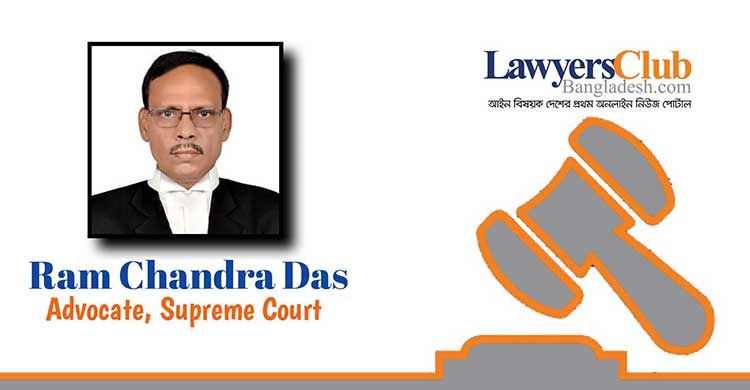11 Major Challenges of High Court Permission Exam and Overcoming Strategies

Ram Chandra Das : You know that, permission to practice before High Court Division of Supreme Court of Bangladesh requires to appear in the 2 steps examination process i.e. written and viva-voce. Over the course of time the examination process especially written examination becomes challenging. Being a candidate if you know the challenges of written exam and also know how to overcome them, you will be able to prepare yourself well to pass this process successfully. This article describes major challenges as well as how to overcome them as follows-
Challenge-1 : Lack of English proficiency specially in reading and writing (specially in legal issues including vocabulary spelling, sentence framing/ grammar which constraint to independent writing)
Overcoming Strategies: (i) Refresh grammar (parts of speech, tense, voice, narration, verb list etc.), (ii) practice the relevant texts, issues and legal terms and phrases (including spelling); (iii) practice writing by using legal terms and phrases. (iv) practice following the ‘style’ of petition writing.
Challenge-2 : Lack of understanding ‘problem questions’ due to different barriers such as i. Language barrier, ii. unknown text and case plot, iii. little facts and information, iv. unknown laws and legal provisions, v. time constraint.
Overcoming Strategies: (i) Identify the type of ‘problem question’ and the recent trends, (ii) Adopt appropriate methods and strategies to learn the analysis of the question, (iii) Understand the syllabus properly (A detailed article is written in the link Understanding Syllabus of High Court Permission Examination (lawyersclubbangladesh.com), and (iv) practice a good number of questions, follow the adopted methods and strategies and find some techniques to understand the questions. For example- enlarge the facts (which are not given) by imagining.
Challenge-3 : Inadequate writing speed
Overcoming Strategies: (i) Overcome the language barrier (mentioned in no. 1) and (ii) practice sufficiently to speed up writing to complete the answer within timeframe.
Challenge-4 : Forgetting different parts of different type of petitions
Overcoming Strategies: (i) Identify the different parts and sequence in the format of each type of petition and (ii) practice minutely (by comparing with each other) them to acquire mastery level.
Challenge-5 : Lack of knowledges of related laws and legal provisions related to civil, criminal and writ issues
Overcoming Strategies: (i) Be acquainted with relevant (frequently asked and potential) laws and legal provisions, and (ii) mapping and visualizing the laws with important sections, and (iii) practice them by noting down separately;
Challenge-6 : Inadequate skills of writing impugned judgment and decree/ order/ actions (which is under challenge)
Overcoming Strategies: (i) identify the elements (what to write) and sequence (what after what) (ii) practice writing by using appropriate legal terms, phrase and style.
Challenge-7 : Inadequate skills of writing statements of facts
Overcoming Strategies: (i) Identify essential facts (ii) learn to organize and sequence facts, and (iii) practice writing by using appropriate legal terms, phrase and style.
Challenge-8 : Inadequate skills of framing submissions and grounds
Overcoming Strategies: (i) Learn to write substantive and common submissions and grounds (related to law, case law and evidence), (ii) practice to write them using appropriate legal terms, phrase and style, and (iii) sequencing them and put the most important ones first and so on.
Challenge-9 : Inadequate skills of framing prayers
Overcoming Strategies: (i) Learn different elements of prayers and (ii)practice writing by using appropriate legal terms, phrase and style.
Challenge-10 : Inadequate exposure of cases (civil, criminal and writs)
Overcoming Strategies: (i) Read different types of drafts of HC such as drafts of civil, criminal and writs, Judgement/ law reports of HC (BLD, BLC, DLR etc.); (ii) Read also documents related to Subordinate Courts (trial court and lower appellate court) such as plaints/ FIR, Judgement and decree/order etc.; and (iii) Recognize the case story and arguments of both sides
Challenge-11 : Inadequate apprenticeship and low confidence (Less experiences in observing chamber and court activities, and preparing briefs; due to this, confidence of the apprentice candidate cannot grow well)
Overcoming Strategies: (i) Attend in and observe to a chamber and court activities in a systematic manner (what to observe and learn the issue/ experiences) at least in part time. (ii) Note down the gained experiences in detail, and (iii) Match and differentiate between trail court practice and High Court practice. (A detailed article is written in this link Effective Apprenticeship Strategies in High Court Division (lawyersclubbangladesh.com)
In conclusion it could be said that the challenges and the overcoming strategies are not exhaustive. When you journey in the real course you will reveal some other points which could be sometimes more important for you. It is expected that the above points will help you in taking preparation well. Besides, you will find more detail understanding and strategies, solutions and examples throughout the manual and in different relevant lessons.
The Author is an Advocate, Supreme Court of Bangladesh. Email: ram.chandra.das@gamil.com

